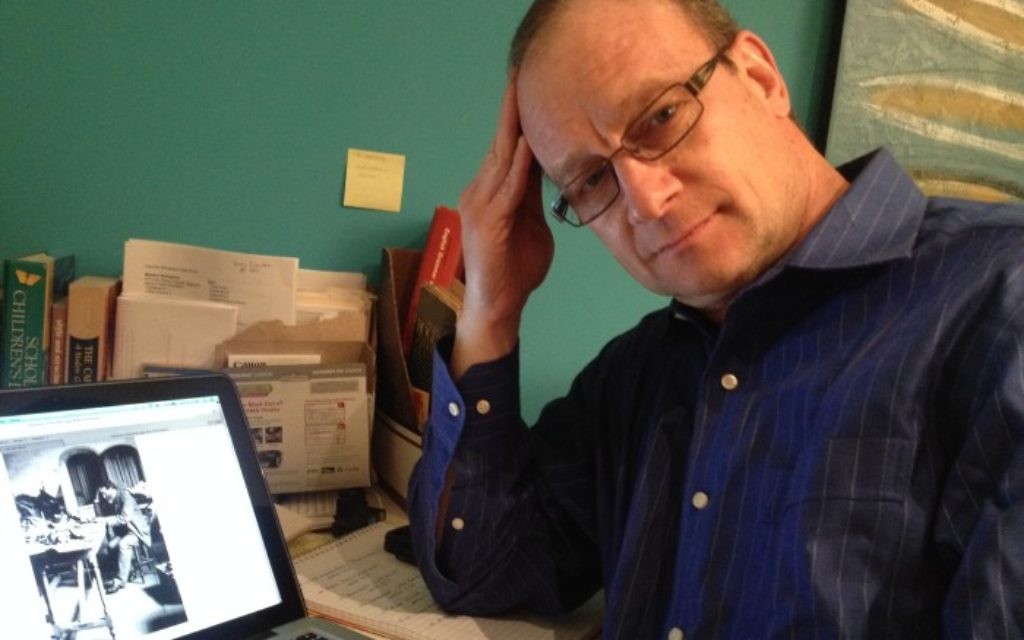An Echo From Another Time, Place
Arsalan Iftikhar grew up in a Chicago suburb. His law degree is from Washington University in St. Louis. He roots for the Buffalo Bills and the Boston Celtics. As an author and commentator, he espouses such American ideals as freedom of religious expression.
After a television appearance, the interviewer told him that he spoke well and without an accent.
Where are you from, she asked. Chicago, he answered. No, where are you really from, she asked. Again he answered Chicago, and he walked away.
Get The AJT Newsletter by email and never miss our top stories Free Sign Up
As politicians, pundits and the public debate whether or how to welcome Middle Eastern refugees, a surge of nativist expression has prompted discussion of closing mosques, creating databases and requiring special badges.
In this, many Jews have heard an unsettling echo from another time and place.
I asked three friends for their perspective.
Iftikhar, aka www.themuslimguy.com, is the author of “Islamic Pacifism: Global Muslims in the Post-Obama Era” and of an upcoming book on Islamophobia.
He stands by this statement made five years ago: “For millions and millions of us who were born and raised in this country, who have known no other home than the United States, we’re starting to feel like Albert Camus. We’re starting to feel like strangers in a strange land now, and that is something that is patently un-American.”
In the Public Religion Research Institute’s 2015 American Values Survey, more respondents (70 percent) said “There is a lot of discrimination against Muslims” in this country than said there is discrimination against gay and lesbian people, blacks, and Hispanics.
Nonetheless, Iftikhar said, “I tell people that Muslims can practice Islam in the United States of America better than in any country of the world, including the 57 Muslim-majority nations on the face of the Earth, hands down.”
Soumaya Khalifa is the executive director of the Islamic Speakers Bureau of Atlanta and the president of Khalifa Consulting. The Egyptian native has been an American citizen for 45 years.
“Many in the American Jewish community are allies of the American Muslim community. You get it, as you have been there,” she said. “We are the most diverse religious community in the U.S., and our diversity includes religious adherence. The similarities between our two communities are striking — dietary guidelines, values, Semitic languages, and the saying that if you have three Jews, you will have four opinions also applies to Muslims.
“Muslims are the primary victims of ISIS and other terror groups. These terrorists do not represent us. Muslims are victimized twice. First, they are their primary targets, then victims of the backlash that takes place afterwards.”
According to the PRRI survey, conducted in September and October, 56 percent of respondents felt that the values of Islam “were at odds with American values and way of life,” up from 47 percent in the 2011 survey.
Melody Moezzi is a lawyer and author who writes about bipolar disorder and mental health treatment, as well as issues affecting the Muslim community.
“As communities of faith with wide spectra of religious and cultural practices, we have managed to support and learn from one another all over this country, throughout history and to this very day. These stories of interfaith and intercultural love and friendship between Jewish and Muslim Americans are not the ones that get the most media attention, but they are nonetheless many and widespread — in classrooms, in workplaces and in living rooms across this country,” said Moezzi, who was born in Chicago and grew up in Ohio. “At this increasingly xenophobic time in American history, Jews and Muslims ought to be doing everything we can to support each other and stand together against injustice and discrimination wherever we find it.”
As to that echo Jews are hearing, the past century provided sufficient examples of the dangers when religion puts a people at risk and others fail to speak on their behalf. American Muslims are our fellow citizens, and that status alone requires that we not remain silent.





comments